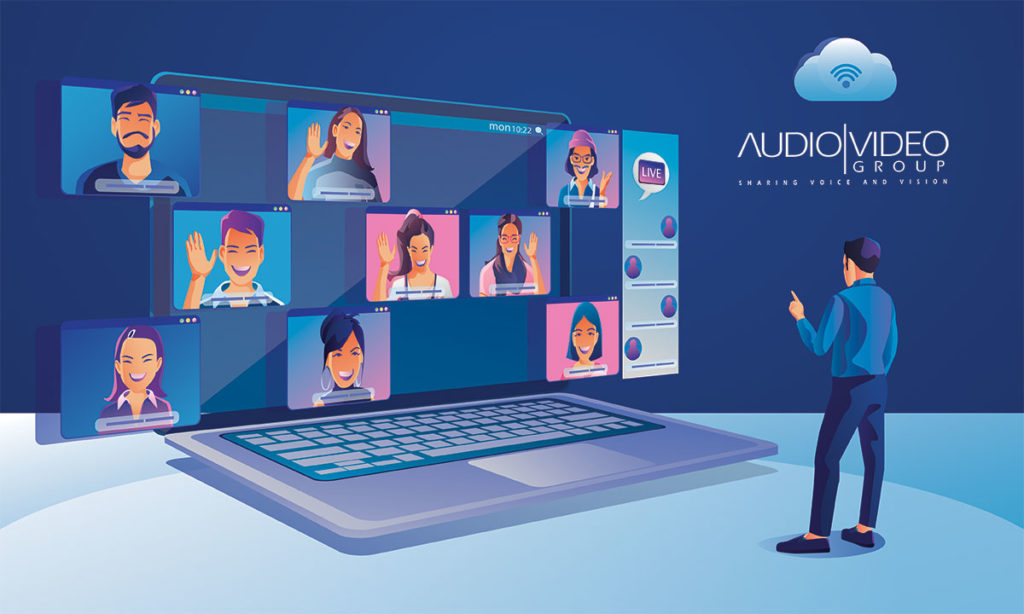Planning a Virtual Event & Why You Need An AV Specialist

Planning a Virtual Event That Will Sell Tickets & WHY YOU NEED AN AV SPECIALIST
When done correctly, virtual events can be a great way to bring people together from multiple locations. They offer the opportunity to share information and ideas with like-minded individuals without leaving your living room! Our AV specialist are here to help guide you.
However, planning a virtual event that sells tickets is not easy. There are many factors to consider, from the type of event you plan to host to the technology you will need to make it a success. This article will discuss some of the most critical aspects of planning a virtual event that sells tickets.
Let’s get started!
Decide on Your Type of Event
First and foremost, you need to decide what type of event you want to host. For your reference, there are four main types of virtual events:
- Webinars
- Virtual Conferences
- Hybrid Events (Internal)
- Hybrid Events (External)
Webinars
Webinars are generally educational. They can be live or pre-recorded and usually use platforms that allow for question-and-answer segments. Companies usually record webinars and offer the content to registrants. Businesses and organizations also use webinars for internal and external training.
Virtual Conferences
Virtual conferences are similar to webinars, but they are usually larger in scale. They might have many speakers giving presentations throughout the day on various topics. These events can be live or pre-recorded as well. Companies often use these events as a lead-capture tool.
Hybrid Events (Internal)
Hybrid events are a combination of virtual and in-person events. For example, you might have a team of employees in one location and the rest of your staff attending virtually. This event is excellent for companies with a large workforce or staff located in different parts of the world.
Hybrid Events (External)
This type of hybrid event is similar to the virtual conference, but it includes an in-person component. For example, you might have a conference with some speakers in person and the rest attending virtually. This option is perfect for companies that want to provide an engaging experience for their in-person and virtual attendees.
What Is the Purpose of Goal of Your Event?
Once you have decided on the type of event, you need to determine the purpose or goal of the event. What do you want attendees to take away from the experience? This will help you to choose the content and format of your event.
You’ll need to decide if you want to include remote guest speakers, video content, music, etc. Try storyboarding the event to get an idea of the agenda, then plan the other elements of your virtual event.
Choose Your Event Platform
Next, you need to choose the right platform for your virtual event. There are many different options available, each with its own features and benefits. Consider the needs of your attendees and select a platform that is easy to use and navigate.
Additionally, ensure that the platform you choose can handle the number of attendees you are expecting. Some popular platforms include GoToWebinar, Adobe Connect, Citrix, and Zoom. But there are many other options with features that can enhance your virtual event. Do your research, and decide which platform is best for you.
Choose Your AV Equipment & AV Specialist
Now that you have chosen your platform and event format, it’s time to select your audio-visual equipment. This is a critical step in planning a successful virtual event. You need to make sure that you have the right equipment to support your presenting content.
For example, if you are hosting a webinar, you will need a microphone, a webcam, and headphones. If you are hosting a virtual conference, you will need a microphone, a webcam, headphones, and a projector.
The audio-visual equipment you select should be compatible with your platform for your event. Your audio-visual equipment can make or break your virtual event.
Promote Your Event
Finally, you need to promote your event. This is one of the most critical aspects of planning a virtual event that sells tickets. Generate interest and excitement for your event so that people want to attend.
There are many ways to promote your event, including social media, email marketing, etc. Promote your event well in advance so that people have time to clear their schedules and plan to attend.
You can plan a virtual event that sells tickets and provides an excellent experience for attendees by following these tips… And don’t just take our word for it.
- Remember to focus on the type of event
- Choose the right platform
- Promote your event to generate interest.
With some planning and effort, you can host a successful virtual event that people will remember long after it’s over. Do you need any help with securing the right AV equipment? Contact us today!

